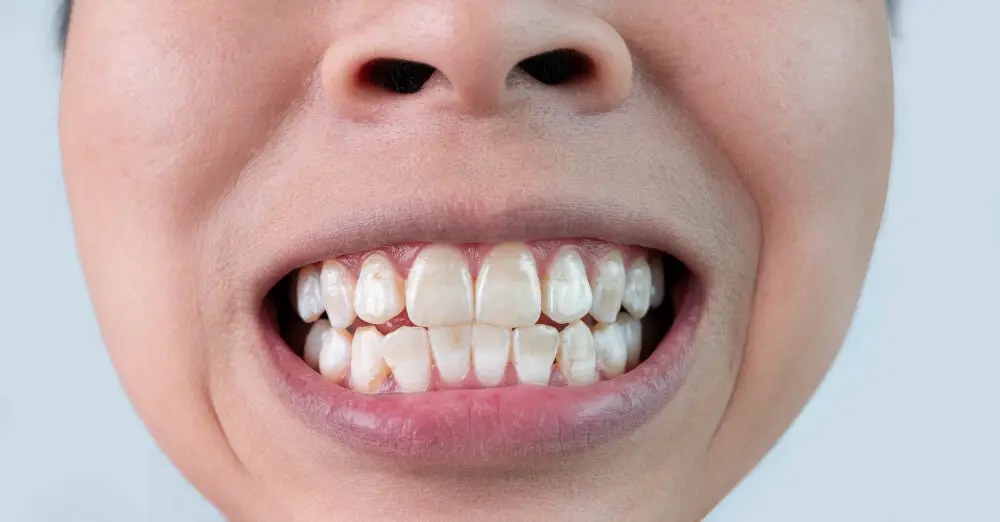Meth Mouth: Understanding How Methamphetamine Destroys Teeth

Methamphetamine, commonly known as meth, is a highly addictive and potent stimulant that affects the central nervous system. It is a synthetic drug that can be smoked, snorted, or injected, and it produces an intense high that can last for hours or even days. Unfortunately, meth use has a devastating effect on oral health, and it is one of the most significant contributors to a condition known as \Meth Mouth.\Meth Mouth is a term used to describe the severe dental problems that result from long-term meth use. The condition is characterized by tooth decay, gum disease, and tooth loss, and it is caused by a combination of factors, including the drug’s chemical composition, the user’s poor oral hygiene, and their unhealthy lifestyle. Meth Mouth has become an epidemic in many parts of the world, and it is a significant public health concern that affects not only the users but also their families and communities. Understanding the causes and effects of Meth Mouth is crucial in addressing this issue and preventing its spread.
Methamphetamine, commonly known as meth, is a highly addictive stimulant drug that affects the central nervous system. Meth use can lead to a range of negative effects on the body, including significant damage to the teeth and gums. Methamphetamine use can cause a condition known as \meth mouth,\ which is characterized by severe tooth decay, gum disease, and tooth loss. The drug can cause a decrease in saliva production, leading to dry mouth, which allows bacteria to build up and cause decay. Methamphetamine use also leads to teeth grinding and jaw clenching, which can wear down teeth over time. Additionally, meth users often consume sugary drinks and foods, further contributing to tooth decay. Meth mouth is a painful and costly condition that can have long-lasting effects on a person’s oral health.
What is Methamphetamine?

Methamphetamine is a highly addictive and potent stimulant drug that affects the central nervous system. It is commonly known as meth, crystal, ice, or chalk. Methamphetamine can be smoked, snorted, injected, or swallowed, and it produces a powerful high that can last for several hours. The drug increases the levels of dopamine, a neurotransmitter, in the brain, which results in feelings of euphoria, energy, and alertness. However, methamphetamine is also highly toxic and can cause a range of physical and psychological problems, including addiction, tooth decay, skin sores, paranoia, and hallucinations. Long-term use of methamphetamine can cause significant damage to the teeth and gums, a condition known as meth mouth. Methamphetamine use reduces the flow of saliva, which can lead to dry mouth and a buildup of bacteria in the mouth. The drug also causes the user to grind their teeth and clench their jaw, which can result in cracked teeth, worn enamel, and gum disease. Additionally, methamphetamine use can cause the blood vessels in the gums to shrink, reducing the supply of oxygen and nutrients to the teeth and gums. This results in weakened teeth that are more susceptible to decay and infection. Methamphetamine users often neglect their oral hygiene, which exacerbates the damage caused by the drug. Overall, methamphetamine use can have a devastating impact on oral health, and users are advised to seek treatment to stop the progression of meth mouth.
Methamphetamine, commonly known as meth, is a highly addictive stimulant drug that affects the central nervous system. It can be taken orally, smoked, snorted, or injected. Meth stimulates the release of dopamine in the brain, causing intense feelings of pleasure and euphoria. However, the drug also has harmful effects on the body, including rapid heart rate, high blood pressure, and increased body temperature. Prolonged use of meth can lead to severe dental problems, such as \meth mouth,\ which is characterized by tooth decay, gum disease, and tooth loss. Meth users often neglect their oral hygiene, and the drug itself can cause dry mouth, which creates an ideal environment for bacteria to thrive.
How Methamphetamine Destroys Teeth

Methamphetamine is a highly addictive stimulant that affects the central nervous system. It is commonly known as meth, crystal meth, or ice. Methamphetamine use is associated with a range of negative physical and psychological effects, including tooth decay and oral health problems. Meth mouth is a term used to describe the extensive tooth decay and gum disease that occurs as a result of methamphetamine use. Methamphetamine causes tooth decay and gum disease by reducing the flow of saliva in the mouth. This leads to dry mouth, which increases the acidity in the mouth and creates an ideal environment for bacteria to thrive. The bacteria produce acid, which eats away at the teeth and gums, leading to decay and gum disease. Methamphetamine use also causes other oral health problems, such as bruxism (teeth grinding), which can cause the teeth to wear down and become damaged. Methamphetamine users may also experience a condition called xerostomia, which is a severe dry mouth that can lead to oral infections, bad breath, and difficulty speaking and swallowing. In addition to these oral health problems, methamphetamine use can also cause a range of other physical and psychological problems, including heart disease, stroke, and psychosis. It is essential to seek treatment for methamphetamine addiction to prevent these health problems and improve overall health and wellbeing.
Methamphetamine, a highly addictive stimulant drug, can cause severe damage to teeth and oral health, leading to a condition commonly known as \meth mouth.\ Methamphetamine affects teeth in multiple ways, including causing dry mouth, clenching and grinding of teeth, and decreased saliva production. Dry mouth, a common side effect of meth use, reduces the protective saliva in the mouth, making it easier for bacteria to grow and cause decay. Additionally, methamphetamine use can cause users to clench and grind their teeth, leading to worn enamel, tooth fractures, and even tooth loss. Decreased saliva production further exacerbates these issues, as saliva helps to neutralize the acids produced by bacteria in the mouth. Overall, methamphetamine use can have a devastating impact on oral health, leading to extensive tooth decay, gum disease, and irreversible damage to teeth.
Signs and Symptoms of Meth Mouth

Methamphetamine, commonly known as meth, is a highly addictive and illegal drug that can cause severe damage to the user’s oral health. The condition of meth mouth is a significant concern among dentists and healthcare professionals. The signs and symptoms of meth mouth are distinct and can vary depending on the severity of the drug abuse. A person with meth mouth may experience tooth decay, gum disease, and tooth loss. The teeth may appear yellow, brown, or blackened. The gums may be swollen, red, and painful. In severe cases, the teeth may break or crumble, leading to difficulty in chewing and speaking. Apart from tooth decay and gum disease, meth mouth can also cause dry mouth, which can lead to the growth of harmful bacteria in the mouth. The drug’s acidic content can erode the tooth enamel and cause cavities, making the teeth more susceptible to infections. Meth users may also experience jaw clenching and teeth grinding, which can further damage the teeth’ structure. The use of meth can also lead to poor nutrition and hygiene, which can exacerbate the oral health problems. Therefore, it is crucial to recognize the signs and symptoms of meth mouth and seek immediate medical attention to prevent further damage.
Methamphetamine, or meth, is notorious for causing severe damage to dental health, resulting in a condition known as \meth mouth.\ Meth mouth is characterized by a range of physical signs and symptoms, including rapid decay, gum disease, and tooth loss. Meth users may experience dry mouth, which leads to a lack of saliva and makes teeth more susceptible to decay. Additionally, meth use can cause the constriction of blood vessels in the mouth, leading to the death of gum tissue and tooth loss. The use of meth can also cause users to grind their teeth, leading to further damage and decay. Overall, the physical effects of meth on oral health are severe, and the damage can be irreversible, making it essential to seek professional help and rehabilitation to prevent further harm.
Treating Meth Mouth

Methamphetamine, commonly known as meth, is a highly addictive drug that causes severe damage to the teeth and gums of users. Meth mouth is a term used to describe the extensive damage to oral health caused by meth use. The drug causes dry mouth, which leads to a lack of saliva, allowing bacteria to grow and thrive in the mouth. This, combined with poor oral hygiene, results in tooth decay, gum disease, and tooth loss. Meth also causes users to grind their teeth, which can cause further damage to the teeth and jaw. Treating meth mouth is a complex process that requires a multi-disciplinary approach. Dental professionals work with medical professionals and addiction specialists to address the physical and psychological aspects of the addiction. Treatment may involve restoring damaged teeth with fillings, crowns, or dental implants. In some cases, teeth may need to be extracted. Gum disease may be treated with deep cleaning, antibiotics, and other medications. Addiction treatment may involve behavioral therapy, medication-assisted treatment, and support groups. It is essential that individuals seeking treatment for meth mouth receive comprehensive care to address all aspects of the addiction and restore oral health.
Meth mouth is a severe dental issue caused by long-term use of methamphetamine. The treatment options for meth mouth depend on the severity of the condition. The first step in treating meth mouth is to address the underlying addiction. Addiction treatment may include therapy, rehabilitation, and medication-assisted treatment. Once the addiction is under control, dental procedures such as teeth cleaning, fillings, and extractions can be performed to address the damage caused by methamphetamine. In severe cases, full mouth extractions or dentures may be necessary. Additionally, practicing good oral hygiene and maintaining a healthy diet can help prevent further damage to the teeth and gums.
Methamphetamine, commonly known as meth, is a highly addictive stimulant drug that can have severe impacts on oral health. Meth users often experience \meth mouth,\ a term used to describe the significant dental problems associated with the drug’s use. Methamphetamine can cause dry mouth, which can lead to an increase in bacteria growth and tooth decay. Additionally, meth use can lead to bruxism, or teeth grinding, which can wear down the enamel on teeth and cause them to crack or break. Seeking treatment for both addiction and dental issues is crucial for those struggling with methamphetamine use. Treating addiction can help individuals stop using meth and prevent further damage to their teeth, while seeking dental treatment can help restore their oral health and prevent further complications.
Conclusion

In conclusion, meth mouth is a devastating consequence of methamphetamine abuse that can lead to severe dental and oral health problems. Methamphetamine use causes a host of issues, including dry mouth, teeth grinding, and poor oral hygiene habits, which can all contribute to the destruction of teeth. The damage caused by meth mouth is often irreversible, and the treatment can be expensive and time-consuming. It is vital to understand the severity of meth mouth and the impact it can have on an individual’s overall health and well-being. Prevention is key, and education and awareness about the dangers of methamphetamine use can help individuals avoid the devastating effects of meth mouth. Therefore, it is crucial to seek help and support from loved ones or medical professionals to overcome the addiction and prevent further damage to oral health.






